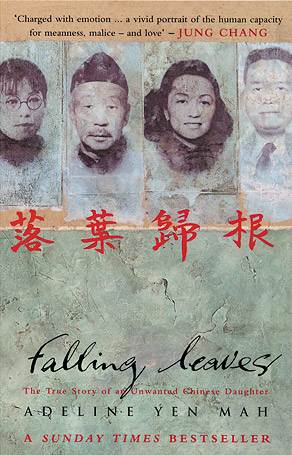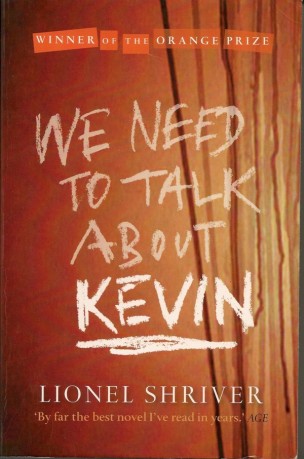 This story has all the archetypal characters of a Brother’s Grimm fairytale: an evil stepmother, a browbeaten father, spoilt siblings and a neglected daughter. However, this is a true story and sadly there is no fairy godmother to come and save the day.
This story has all the archetypal characters of a Brother’s Grimm fairytale: an evil stepmother, a browbeaten father, spoilt siblings and a neglected daughter. However, this is a true story and sadly there is no fairy godmother to come and save the day.
I first read the kids version of this book, Chinese Cinderella, in my early teens, and I was equally hooked and horrified by it. I don’t know why, but I remembered reading it just the other day – and thought it was about time to read the grown ups version, Falling Leaves, the full autobiography of Adeline Yen Mah.
Shortly after her birth in Tianjin (China), Jun-ling’s mother dies from a fever and Jun-ling is fated to be the outcast for the rest of her life after bringing such terrible luck on the family. Jun-ling’s father remarries a beautiful young woman half his age named Jeanne, who gives all her new stepchildren fashionable European names. As Jun-ling becomes Adeline, so begins Jeanne’s tyrannical hold over every aspect of Adeline’s young life.
I wouldn’t usually recommend books about child abuse to friends and family, as they’re usually incredibly upsetting to read. As important as it is to know about some of the awful things that go on in the world, Dave Peltzer’s A Child Called It just made me sick to the stomach. Falling Leaves is however, very different from anything else I’ve read in this category. For a start, Adeline’s abuse continued way into her adulthood, and is predominantly a cruel maze of mind games and psychological bullying. The author also provides cultural and social context, and explains how China’s modern history had an impact on her life – (I didn’t have a clue about any of this and it turns out China’s pretty interesting).
The clear hard facts of Adeline’s story are compelling enough, but the emotional anguish she describes makes you start to understand how she coped with her circumstances. I’m probably making this book sound really worthy. It isn’t. It actually comes across as incredibly honest. We also come to learn that Adeline’s passion was always writing, and she originally wanted to study literature (although because that wasn’t part of her father’s plan, she was sent away to do medicine instead). The writer definitely comes through in this story, making it personal, heart breaking and triumphant all at the same time.
